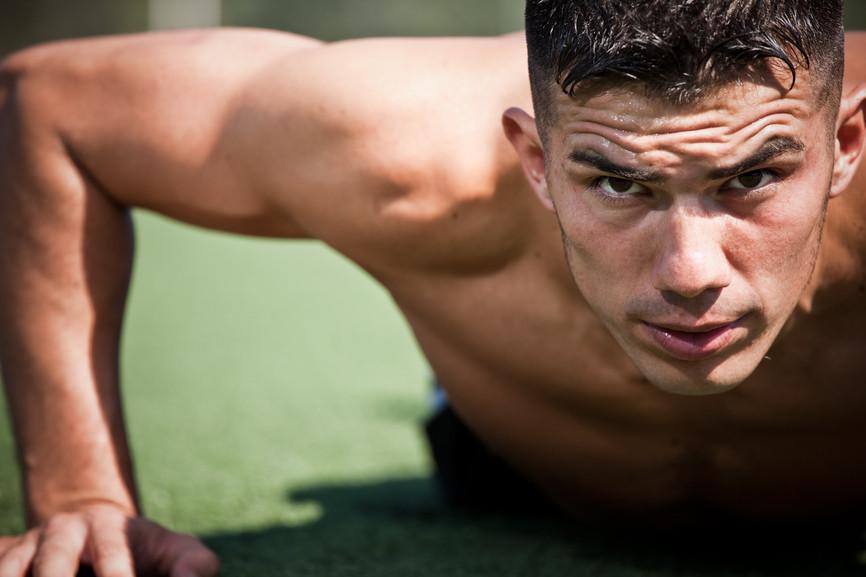Post Workout Magnesium Supplementation For Athletes

During physical education class you're taught to replace the electrolytes sodium and potassium after a workout, practice or match. However most of us don’t even consider replacing our magnesium storages after a workout.
It's extremely bad news considering that the competitive athlete is predestined to suffer from hypomagnesemia and other electrolyte imbalances more than the average person.
Whether you're crushing it in the gym or sweating on the practice field, electrolytes are lost in greater amounts through consistent perspiration, urine excretion and from not practicing proper electrolyte replacement after your workouts.
During strenuous activity magnesium is required by the organs (including muscle) and a situation is created whereby there is an increased difficulty to supply magnesium to the athletes by natural sources in sufficient amount. Continuous magnesium supplementation to the athlete must be considered as a supportive and beneficial measure during periods of long physical stress [1].
Magnesium is also used in large amounts for ATP production and to aid in recovery in muscles, which can also cause magnesium to become further exacerbated leading to a severe depletion [2].
Popular electrolyte replacement supplements (think Gatorade) are poor at remedying hypomagnesemia because many of these supplements don’t contain either the best magnesium chelations, or proper amounts of supplemental magnesium.
What's even worse is that magnesium isn't highly concentrated in many of the different foods that we eat on a daily basis. Even for foods containing high amounts of Mg, most of it is bounded by phytic acid which prevents your body from absorbing it [3].
As an athlete, all of these factors directly contribute to low magnesium levels. Supplementing with a premium quality magnesium supplement is the best option for immediate results.
There are a multitude of studies that suggest correcting magnesium deficiency can also improve overall athletic performance.
- Our results show that supplementation with magnesium increases free and total testosterone values in sedentary and in athletes [4].
- Magnesium supplementation positively influences the performance of training athletes by increasing erythrocyte and hemoglobin levels [5].
- Adequate magnesium levels are required in order to sustain an appropriate performance level due to its key role in energetic metabolism, in membrane stabilization and in muscle contraction [6].
Supplementing Magnesium for Athletes
Proper magnesium supplementation should be based on your bodyweight.
Half of your daily dosage should be taken immediately after a workout. The rest of your daily magnesium supplemental dosage should be taken at bedtime to help facilitate recovery and improve sleep quality.
Recommended guide: 200 mg for every 50 lbs of bodyweight.
On days of increased physical performance, you may need to increase the dosage to 300 mg for every 50 lbs of bodyweight.
I strongly advise to all of my clients that they should be supplementing with magnesium on a daily basis to prevent the development of hyopmagnesemia and insure the body is at an optimal level. Remember that you're not able to get the daily required amount from food alone.
You may also want to have your physician perform a RBC magnesium blood test every three to six months just to be certain that your magnesium blood levels are okay.
Getting started
As you begin researching different products available, I always tell people to start with MagTech as it has one of the highest absorption rates of any magnesium supplement ever developed. It can further provide performance benefits for you because of the chelations that are used in the supplement.
Magnesium taurate can help increase ATP production in your muscles and help protect your heart, while L-threonate may greatly increase magnesium concentration in the brain and spinal column for increased cognitive function, as well as improve your nerve conduction [7].
Learn more:
You're probably suffering from a magnesium deficiency and don't even know it
Magnesium l-threonate can improve brain function and long-term potentiation
Resources:
- Golf S. Magnesium and physical exercise. Journal of Trace Elements and Electrolytes, 2008; 25(4): 231.
- Changes of Magnesium Concentrations in Endurance Athletes.
- Phytic acid added to white-wheat bread inhibits fractional apparent magnesium absorption in humans.
- Effects of Magnesium Supplementation on Testosterone Levels of Athletes and Sedentary Subjects at Rest and after Exhaustion
- Effects of magnesium supplementation on blood parameters of athletes at rest and after exercise
- Magnesium status: influence on the regulation of exercise-induced oxidative stress and immune function in athletes.
- Novel Magnesium Compound Reverses Neurodegeneration










